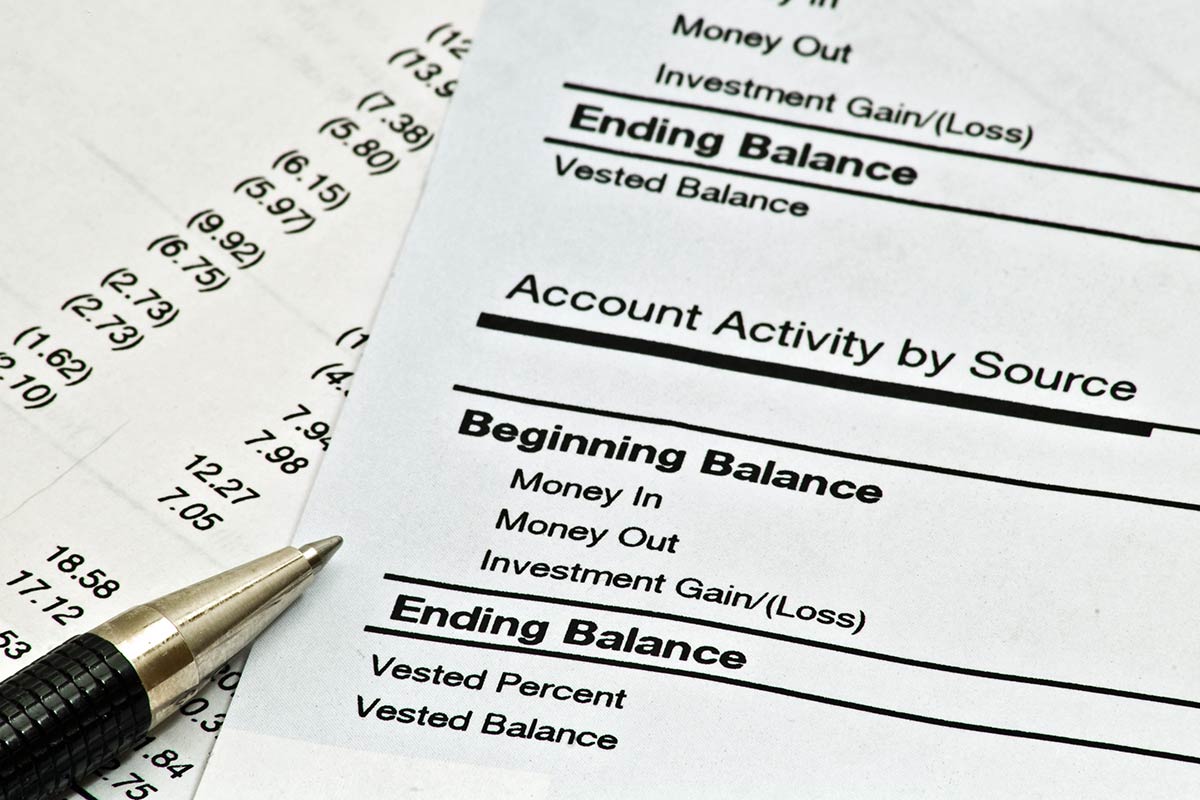
Before a mortgage application is accepted, mortgage lenders often need to see your bank statements. This is in order to gain an understanding of your spending habits and current financial situation.
Depending on the mortgage lender, as well as your own circumstances, how many bank statements and what criteria they need you to meet may be different.
Why does the lender need my bank statements?
We are often asked, “What do mortgage lenders look for on bank statements?” Often mortgage applications are assessed by an underwriter, whose job it is to evaluate and approve each mortgage request.
They need to see recent bank statements to better understand your financial situation. What regular payments do you already have, and get a better understanding of your general affordability.
Usually, mortgage lenders want to see that the funds in your bank account are yours (built up from savings accounts for example). However, most lenders will accept a gifted deposit from a family member if it is properly documented.
Essentially, any money used for a home loan needs to be “sourced and seasoned”.
- Sourced: This means that it is clear where your down payment has come from, and any unusual or gifted deposits are explained and documented. Although, large deposits may still need to be explained.
- Seasoned: Typically this means that your deposit has been in your bank account for 60 days or more. Banks usually ask to see three months’ bank statements, so these should show the funds sitting in your account.
How far back do lenders look at bank statements?
More often than not, lenders ask to see your last three bank statements, however, this does vary depending on the provider and your personal situation.
Depending on your financial situation, the lender might ask to see more accounts. Usually, if you are self-employed you will be asked to provide additional statements for business accounts.
For those who are self-employed, some lenders might ask you to provide your tax self-assessment or tax returns.
Do I need to provide statements for all of my bank accounts?
This will again depend on how your personal finances are organised. Lenders will want to see your main current account to see your day-to-day spending habits as well as your monthly income. This should be clearly visible on your bank statement.
Mortgage lenders will also look at your savings account where your deposit is. If you need to move savings around in order to reach your deposit amount, be prepared to provide bank statements for all these accounts. Your mortgage broker will be able to advise what is required for each mortgage provider.
What do underwriters look for on your bank statements?
Lenders are looking for responsibility with finances. They need to see that you can budget accordingly and will be able to afford your future mortgage repayments. This is especially true if you’re a contractor or zero-hours contract worker.
The key things mortgage underwriters will look at your most recent bank statements to determine:
- Money for deposit
- Regular cash flow
- Cash reserves for any unexpected costs
- Overdraft use
- Large purchases
- Bounced payments or returned direct debits
- Credit commitments
- Excessive gambling
These things give an underwriter an idea as to how you manage your finances but don’t always negatively affect your chances of being accepted. A credit report is a good way to understand your financial history better and flag any areas where you can make some changes.
Do mortgage lenders also consider your assets?
In most cases, most mortgage lenders won’t take any assets into consideration when assessing your suitability for a mortgage loan.
However, in circumstances where you want to use things such as a pension or investments towards your affordability, these could be taken into consideration as a source of income or down payment. In these instances, you would need to provide other documents to prove your affordability.
What mortgage lenders don’t want to see on your bank statements
It is important to look at your finances carefully before embarking on a mortgage application.
A mortgage lender will look for red flags that might indicate you are a risk, and underwriters and mortgage brokers are very skilled at being able to spot them.
Bounced cheques, refused direct debits, missed payments
Any defaults can cause serious problems and often require lengthy explanations. It is really important to keep cash in your account to cover any recurring direct debits or payments, as missed payments can severely impact your credit score.
There are lots of websites available where you can check your credit score and understand your credit history in more detail.
Large, Undocumented deposits (perhaps from overseas)
As part of a mortgage lender’s due diligence, underwriters will look and question any large deposits, particularly if you have money coming from overseas accounts. This is due to the potential risk of money laundering.
Lenders will want to see the build-up of funds from whichever account the money has come from, even if you transfer it from an overseas account into your UK bank account.
This means you may have to provide bank statements for multiple accounts.
It is not always a problem to have large transactions in your bank accounts, but it is important to be able to trace and explain where your money is coming from. Therefore, just be prepared to be questioned about them.
Irregular Activities
Any money coming in or leaving your account linked to an unknown source is again likely to be questioned by an underwriter.
Each bank statement will probably look fairly similar, with regular payments set up for utility bills for example, but a lender will be able to spot unusual payments quite easily.
However, sudden changes are sometimes easy to explain to a lender, such as receiving some inheritance or a sign-on bonus from a new job.
If this is the case for you, make sure you have documentation to prove where the source of funds has come from before you submit your statements for review.
Gambling
A bet here and there isn’t likely to hinder your chances of being granted a mortgage loan, but when bank statements show excessive gambling it is certainly a red flag for most mortgage lenders.
If you have numerous transactions with betting accounts, and they take up a large proportion of your monthly income, this might be a problem for a mortgage company.
In the months before you provide bank statements to apply for a mortgage application, try and curb betting and unnecessary expenses, and keep an eye on your credit score to track any improvements.
Payday loans
As a general rule, most mortgage lenders are very nervous when it comes to these types of loans. The purpose of looking over your bank statements is to determine whether you are capable of managing your finances, so taking out a high-interest, short-term loan isn’t a good sign for most banks.
Remember, a payday loan is classed as a credit commitment which will show on your credit report. All credit commitments will be taken into consideration when assessing your circumstances and ability to keep up with monthly mortgage payments.
It is vitally important, especially if you have a bad credit history, to plan for the mortgage application process in plenty of time. Your mortgage approval chances will drastically increase if you understand the difficulties in your finances and take proactive steps to improve these.
What can I do to show the lender I am reliable?
The beauty of knowing what mortgage lenders look for in your bank statements gives you the opportunity to implement some changes before you start applying for a mortgage.
In the three months before you apply, it is a good time to look for ways to save money and show a lender you’re a safe bet.
- Ensure there’s always enough money in your account so you don’t dip into your overdraft
- Make monthly payments on time
- Keep an eye on your credit rating
Are there lenders that don’t ask for bank statements?
There are some lenders out there that on occasion don’t request to see bank statements, however, this would be based on an underwriter’s discretion, so there’s never a guarantee you’ll never have to provide bank statements.
An underwriter will always be able to spot something you may be trying to hide on your bank statements, so it’s better to make some positive changes.
If you do have defaults, bad credit, or a County Court Judgement (CCJ), a specialist lender might be better suited to your circumstances.
Speak to Millennium Mortgages
Here at Millennium Mortgages, we have a wealth of experience, and access to most of the mortgage products available on the market, meaning we’re in a great position to be able to help you get the most suitable mortgage product for your circumstances.
We deal with all the paperwork and admin with the lender and can help you look at your finances to put you in the best position possible to secure a mortgage offer.
Contact one of the team today to see how we can help you get a better deal.
Information contained within this blog was correct at the time of publication ( 09/12/22) and is subject to change.
Your home may be repossessed if you do not keep up repayments on your mortgage.

Mike Plaster is CeMap qualified CAS status Mortgage and Protection Adviser able to assist on both Residential and Buy To Let Mortgages as well as Life Insurance, Critical Illness Cover and Income Protection.